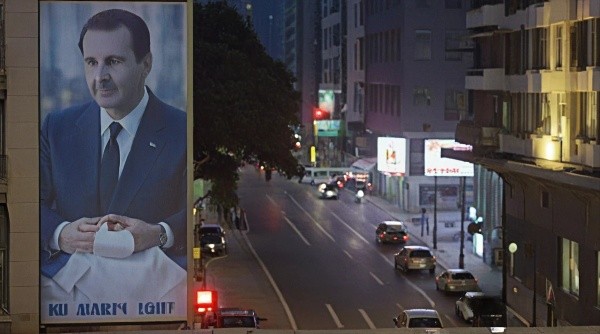Iran’s Plan to Strike Back Against the U.S.
Iran’s Military Preparations Following U.S. Attacks
Loading...

Opposition forces declare Syria free of Assad rule as the president reportedly flees the country.
President Assad Reportedly Flees
In a stunning turn of events, Syrian President Bashar al-Assad is reported to have fled the capital, Damascus, as opposition fighters gained control of the city. This marks a significant milestone in the ongoing conflict, as opposition forces declared Syria officially free from the Assad regime. Witnesses describe scenes of jubilation as citizens poured into the streets, celebrating what they view as a long-awaited liberation from decades of authoritarian rule.
A Declaration of Freedom
On the ground in Damascus, opposition fighters have proclaimed the dawn of a “new era,” emphasizing a commitment to justice and unity rather than revenge. Hadi al-Bahra, the head of the Syrian political opposition coalition based abroad, announced the city as “free of al-Assad” and congratulated the Syrian populace on their newfound freedom. This sentiment was echoed by many residents, who expressed hope for a brighter future.
Meanwhile, Syrian Prime Minister Mohammad Ghazi al-Jalali has stated that he remains in his residence, ready to cooperate with the opposition. His intention is to ensure that public institutions continue to operate smoothly during this transitional phase. In a show of restraint, Abu Mohamed al-Julani, the leader of the prominent fighting group Hayat Tahrir al-Sham, instructed his troops to avoid attacking public services or institutions, indicating a desire for a peaceful transition.
Celebrations Erupt Across the City
The atmosphere in Damascus is electric, with citizens chanting “Freedom! Freedom!” as they celebrate the end of over 50 years of rule by Bashar al-Assad and his father, Hafez al-Assad. The celebrations are a testament to the resilience of the Syrian people, who have endured years of conflict and oppression.
In a remarkable show of goodwill, opposition forces released prisoners from Sednaya Prison, known for its harsh conditions, as part of their campaign to win the hearts of the populace. This act of liberation, alongside the rapid advance of rebel fighters, has fueled the celebration and strengthened the resolve of the Syrian people.
Reports indicate that government soldiers have dropped their weapons in surrender as the opposition forces advanced. By early Sunday morning, the army command confirmed the end of Assad’s rule, marking a pivotal moment in Syria’s tumultuous history.
The Strategic Importance of Homs
The success of the opposition in Damascus was mirrored by their earlier achievement in Homs, a strategic city located two hours north of the capital. The swift capture of Homs, with minimal resistance, allowed rebel fighters to disrupt the connection between Damascus and Assad's coastal strongholds in Lattakia and Tartus. This strategic victory further undermines the Assad regime's ability to maintain control over the country.
As the situation unfolds, the international community watches closely, with many hoping that this shift in power could lead to a more stable and democratic Syria. The actions of the opposition in the coming days will be crucial in determining the future of the nation and the well-being of its citizens.
In conclusion, the recent events in Damascus signify a potential turning point in Syria's ongoing conflict. As citizens celebrate their newfound freedom, the next steps taken by both the opposition and the remnants of the Assad regime will shape the future of the country for years to come.
Editor
Iran’s Military Preparations Following U.S. Attacks
Troops remain in five strategic locations, raising fears of renewed tensions and long-term occupation.
Opposition forces have taken control of the capital after a significant offensive. Here is how it unravelled.
